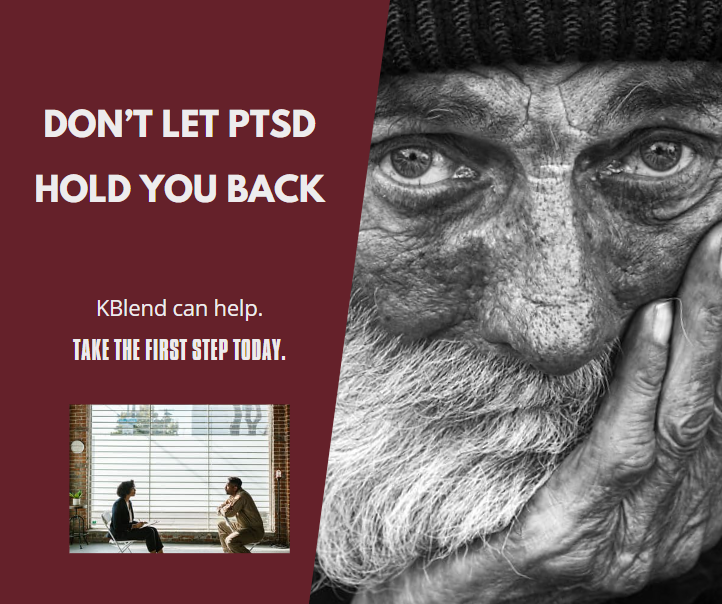
KBlend Manifesto: Thriving in Brokenness
Introduction: Why KBlend?
In today’s world, mental health is often framed by diagnoses, symptom management, and pharmaceutical dependency. Success is equated with comfort, prosperity, and ease. Yet history and scripture remind us that deep transformation rarely grows in comfort—it is forged through suffering, brokenness, and struggle.
KBlend exists to reclaim that truth: healing and fulfillment are found in Jesus Christ, not in the eradication of hardship. Our mission is to unite theological depth, emotional capacity, and clinical practice to help people thrive even in the midst of brokenness.
1. Identity and Brokenness
- Humanity shares a common inheritance: a fallen nature, broken by sin. This reality is universal.
- But our identity is not locked in sin or in diagnosis. In Christ, we are made new creations. Perfection is ours not by achievement, but by union with Him.
- KBlend teaches that conditions, trauma, or labels do not define us—they are part of our experience, not our identity. Christ defines our identity.
2. The Role of Emotions and Affections
- Puritan writers like Jonathan Edwards and Richard Sibbes remind us: true faith requires affections. Love, longing, grief, and joy are not optional—they are signs of spiritual life.
- To encounter Christ is to have our emotions awakened and directed toward Him.
- A faith of thoughts only—cold, intellectual, detached—leads to emptiness. A faith of transformed affections leads to wholeness.
- KBlend emphasizes that emotional healing is not separate from spiritual healing—they are deeply intertwined.
3. Suffering vs. Comfort in the Church
- The Puritan church often flourished in hardship because suffering sharpened spiritual hunger and revealed Christ’s sufficiency.
- Today, many equate blessing with comfort. But comfort without Christ dulls the soul.
- KBlend insists: Jesus brings satisfaction and fulfillment not in prosperity but in broken lives. Our suffering does not disprove Christ’s presence—it magnifies it.
4. Toxicity, Boundaries, and Justice
- Historic Christian communities enforced justice to restrain evil. They did not glorify silent endurance of human cruelty. Harm demanded response.
- They distinguished between hardship (which sanctifies) and harm (which must be restrained).
- Today, “toxic” language can overextend, prompting premature abandonment of relationships and institutions. This weakens resilience and erodes community.
- KBlend’s path: endure hardship as sanctifying, seek justice against harm, and resist the cultural drift toward dismantling everything uncomfortable.
5. Practical Transformation: The KBlend Method
KBlend integrates theology, psychology, and clinical practice into one transformative path:
- Spiritual: Root identity in Christ, cultivate emotional affections, embrace assurance of grace.
- Psychological: Train the nervous system to regulate under pressure; resist distorted, self-protective narratives.
- Relational: Pursue restoration rather than dismantling; build families, marriages, and communities that thrive in imperfection.
- Clinical: Combine therapeutic tools (including ketamine therapy where appropriate) with spiritual practices for holistic healing.
6. Anchors in History and Scripture
- Puritans: Richard Sibbes, John Flavel, Jonathan Edwards—voices that affirmed suffering as refining, affections as essential, Christ as sweetest in hardship.
- Scripture: Paul’s “thorn in the flesh” (2 Cor. 12), James’s call to count trials as joy (James 1), and Jesus’s words that His strength is made perfect in weakness (2 Cor. 12:9).
- Modern challenge: Recover this vision in a culture that equates ease with success.
7. The KBlend Vision
- Brokenness is not the end—it is where Christ’s sufficiency is revealed.
- Emotions are not the enemy—they are instruments of encounter with Jesus.
- Comfort is not the measure of success—faithfulness in suffering is.
- Community is not meant to be dismantled at the first sign of hardship—it is meant to be sanctified and strengthened.
Our calling is to live, teach, and practice a faith that thrives in brokenness, and to offer the world a model of healing that is both ancient and urgently needed today.
Conclusion
KBlend is more than a clinic, more than a program, and more than a philosophy. It is a way of life rooted in the conviction that Jesus Christ brings wholeness in the midst of brokenness.
The world tells us to flee hardship, numb pain, abandon relationships, and dismantle what feels toxic. KBlend tells a better story: in Christ, suffering can sanctify, emotions can heal, justice can protect, and broken lives can thrive.








